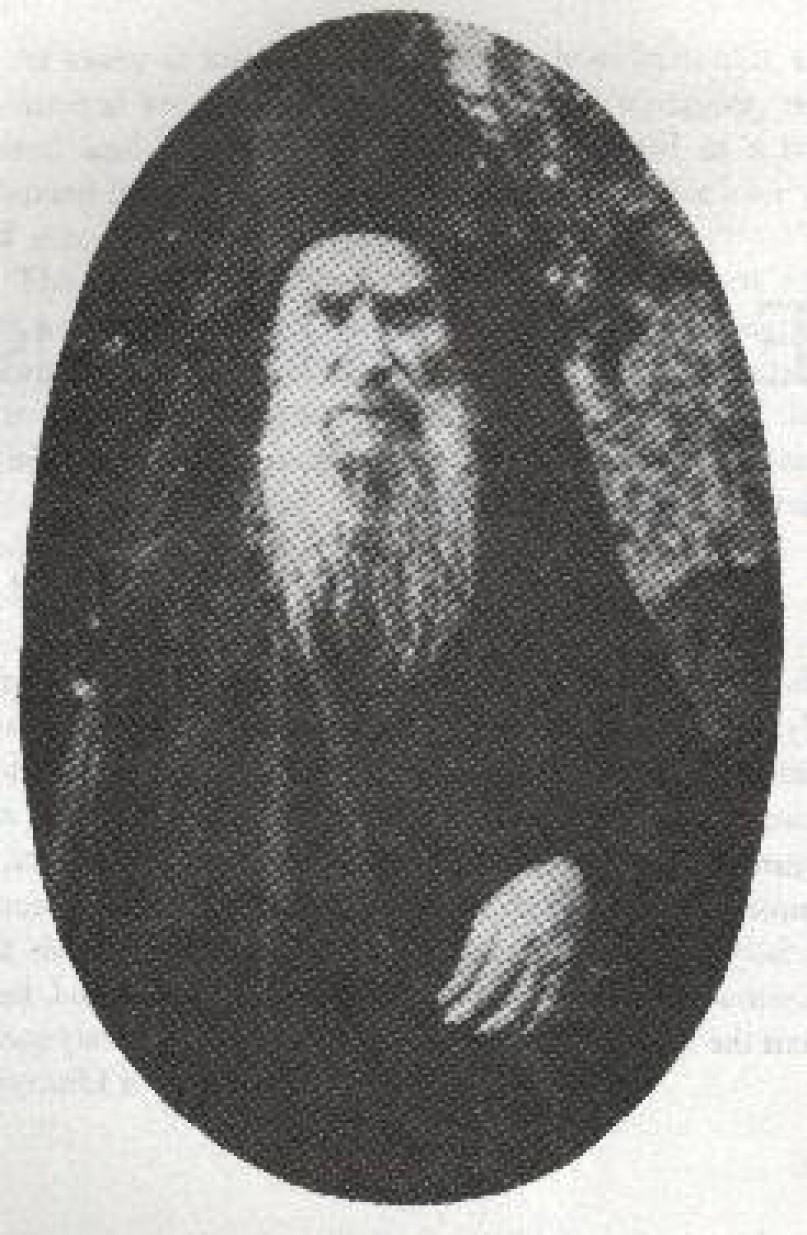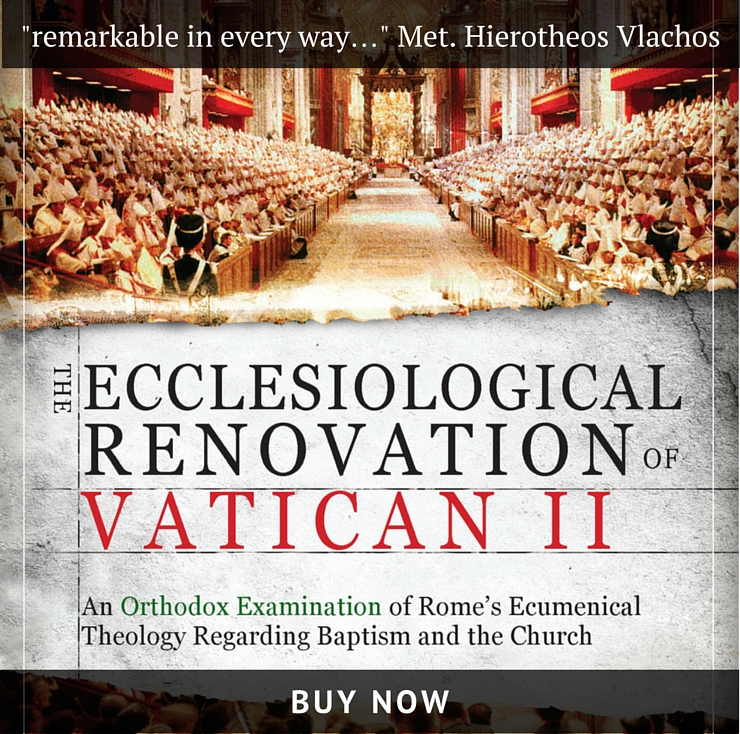Introduction:
The Saints were men and women who exemplify the perfection of the Christian life through holiness and virtue we should strive to emulate. In what follows from the life of the Blessed and clairvoyant Geronda Athansius of Gregoriou Monastery (Mt. Athos), we find three valuable life lessons we need to hear and implement during these days in which many Orthodox Christians - clergy and laymen alike - have fallen prey to demonically-influenced fear and secular rationalism to the extent of casting doubt on the power of the Holy Things and replacing sacred traditions with blasphemous innovations. As we see in the life of the clairvoyant Blessed Elder Athanasius of Gregoriou Monastery (Mt. Athos), we learn three valuable life lessons:
1) Whenever we are faced with danger, we must run to God and His Saints first with unwavering faith and trust for help, strength, and protection;
2) Whenever we are sick, we should first and foremost ardently seek the healing Christ offers us in the Hospital of His Holy Temple through the medicine of the Holy Mysteries and Holy Things such as the Relics and Icons since they are conduits of healing and nourishment we need;
3) Whenever people seek to undermine, attack, and persecute our Faith or attempt to introduce anti-Christian innovations, especially when they are blasphemous and cast doubt on the power of the Holy Things, we must be ready to defend the Faith and be willing to sacrifice anything for the Truth and ultimately our own salvation, even if this means suffering imprisonment, fines, loss of jobs etc.. Our obedience to Christ often comes at a heavy price in this vain life, though we should take comfort in knowing that our allegiance to Christ not only lifts us into the heavenly abodes the Saints reached, but any earthly suffering does not even compare to the glorious blessings of eternal life, so long as we remain faithful until the very end.
1) The Locust Swarm vs The Saints
“In the village of Voultisa, which is in the coastal area of Pieria east of Veria, Grigoriou Monastery had a metochion which it had bought in 18557 from a certain Turkish bey. One time the steward, very upset, sought for help from the Monastery. He requested that they send him a devout priest and holy relics. A terrible evil had struck that flat region of the country. Countless armies of locusts were spreading destruction and threatening to devastate everything in sight.
The Monastery council decided to send help immediately. The holy relics were prepared, among which were those of the Holy Martyr Anastasia the Roman. The Monastery had no hieromonk to send more pious than Fr. Athanasius. And he, accustomed to obedience, made a prostration to the Abbot, prayed, received the blessings of the fathers, and set off to do battle against the natural disaster in the village.
When Fr. Athansius arrived in Voultisa, he was greatly pained by the catastrophe, seeing the damage being done by the swarm of locusts. With evident anguish, the villagers were begging God to have compassion on them - they had no other hope. Joyfully they welcomed the help of the Monastery, fervently kissing the holy relics and the hand of the hieromonk from Mt. Athos, by whom they were immediately impressed.
“Father, pray to God that He might make a miracle,” they implored him with tears.
The situation allowed no delay. Armed with the strength of his faith, Fr. Athanasius donned his epitrachelion[*] and began sprinkling with Holy Water. Praying together with him were the Saints, whose relics he was carrying. So many times in his life he had shown obedience to God - would not God be obedient to his earnest supplications? [**] In the deathly silence that gripped the multitude of stricken Christians, the steadfast, majestic voice of Fr. Athanasius could be clearly heard:
“Do not condemn the land,
Nor the vineyard, nor the garden,
Nor the fruitful or fruitless tree,
Or the green leaf…
But go away, depart
From the land.”
While the villagers crossed themselves, Father Athanasius proceeded to the fields, carrying the holy relics in his hands. The people were in an agony of fear and suspense. This assistance from Mt. Athos was their last hope. Would this hieromonk do anything with his saints and prayers? But it was not before their desperation was changed into great joy.
As Fr. Athansius with the holy relics continued walking through the fields, the swarm of locusts, as if smitten by some invisible power, began to leave and fly far away. Shortly afterwards, the sea around them became unrecognizable, strewn with millions of drowned locusts. The region was saved from that horrible pestilence. Never had the place seen such exultation, tears of joy, and kissing of hands afterward.
But what transpired a few days later in the harbor of Grigoriou Monastery surpasses all description. In a splendid procession with incense, banners, and fans, the fathers welcomed Fr. Athanasius with unprecedented emotion. They received him like a Roman general triumphantly returning to Rome after defeating the barbarians.”
2) The Relics of Saints as Conduits of HEALING
“Another protector of the Monastery is the Holy Virgin-Martyr Anastasia the Roman, who in the third century was martyred by Decius with terrible tortures. Towards the west end of the outer courtyard there is a compunctionate church dedicated to her name. Many fragments of her holy relics have been preserved in the Monastery, including portions of her skin which have been fragrant with time. There is a special receptacle containing blood shed at the time of her martyrdom.
St. Anastasia especially cares for the health of the fathers, and for this reason they give her the name “Physician.” It is no easy task to enumerate all the times when the monks were delivered from sickness by her miraculous power. There were periods of time when the infirmarians of the Monastery had nothing to do, because anyone who fell sick had only to make a prostration before the relics of St. Anastasia, and he would be immediately healed… Patron Saints! The more one thinks about this reality, the more one marvels. The good God has assigned to the various institutions of the Church “small gods,” if that expression is permissible. How happy he must feel who is overshadowed by their strong wings! One must keep vigil and pray to maintain the best possible relationship with them.”
3) His Love and Respect for Holy Tradition
“During the period of his abbacy, Fr. Athanasius was confronted many times with various problems and difficulties. In his first years he was worn out by the calendar question. He had no desire to align the Monastery with something that was being imposed on them by the modernist spirit.
His stand was reminiscent of the Studite Monks: “We must,” he said, "remain unshaken pillars of the ancient traditions of our Fathers and appear as brave soldiers of Christ, and not say, ‘The Bishops and the Patriarchs tell us!’ What does the Apostle Paul, the mouth of Christ, tell us? ‘Even if angels descend from heaven and preach another Gospel, do not listen to them.’ (cf. Galatians 1:8)...
During his abbacy he had carefully observed the principles established for the Monastery by former abbots. He believed that the more closely we imitate the Fathers in their way of life, the more we will be able to attain their successful end. One deviation from tradition, especially without serious reason, can lead to a second. The second easily accepts a third, and the evil continues…”
----------------------------
Sources:
Archimandrite Cherubim, Contemporary Ascetics of Mount Athos Volume 1, pgs. 112, 114-115, 129-130, 131, 133-134.
* “Let us make note of this: He [Fr. Athanasius] regarded the priesthood with such piety and fear that when he later became Abbot and tonsured some twenty-seven monastics, he never dared to allow anyone to advance to the holy altar. He constantly kept in mind the saying: “Better with a prayer-rope in Paradise than an epitrachelion in hell.”” (pg. 112)
** “Heaven easily bends down towards such souls, and the veils between this world and the other are easily parted asunder.” (pg. 131)



Please be kind, lest your comment go the way of Babylon.